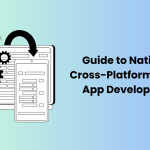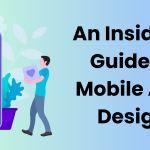Are you ready to embark on an app development journey but unfamiliar with the mobile app stores list? Relax, these app stores are as easy to grasp as they sound.
Whether you have to distribute your app to potential users or want to exhibit numerous niches, mobile app stores play a significant role in building a connection between users and apps.
Mobile app stores offer great benefits for developers and app users. They provide a dedicated platform for developers to showcase their apps to millions of potential users. In addition to that, they also enhance credibility on the part of developers and make your app more visible.
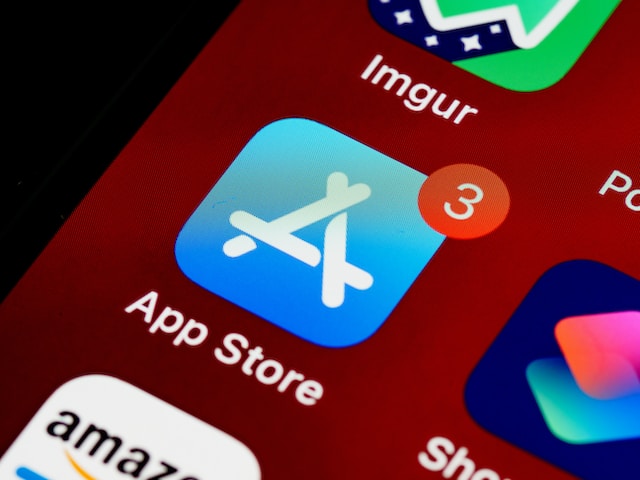
For consumers, app stores provide a practical “one-stop shop” where they can locate, assess, download, install, and update mobile apps. It is easy for users to find and choose novel apps with features like ratings, user reviews, and editor suggestions.
There are multiple mobile app stores available, iOS and Android being the market leaders amongst other alternatives. The nature of your app, the type of potential consumers and the hosting and refund issues are primary deciding factors in selecting a mobile app store.
We’re going to discuss a comprehensive list of mobile app stores for 2024 with you. Let’s get down to it.
The Ultimate List of Mobile App Stores (2024)
As we previously established, the Apple software Store (for iOS applications) and Google Play Store (for Android apps) are the two titans of the mobile software market. There are about 3.7 million applications available on the Google Play Store and 4.8 million on the Apple App Store, according to data for both stores. However, the Google Play Store sets the standard for mobile shops with more apps accessible for download than Apple’s store.
Developers, however, face some limitations on the Google Play Store at the time of app submission and approval. This encourages them to not rely on Google alone and to think about other alternatives to publish their Android apps.
Android’s open-source nature allows several businesses to develop Android app stores. So, we have a broader list besides the well-known Google Play store. Here’s a rundown of famous mobile app stores.
Google Play Store
The official app store for Android-powered smartphones is Google Play, formerly known as Android Market. Since 2008, when it was first launched after the launch of the first Android phone, it has expanded to become the world’s biggest app store.
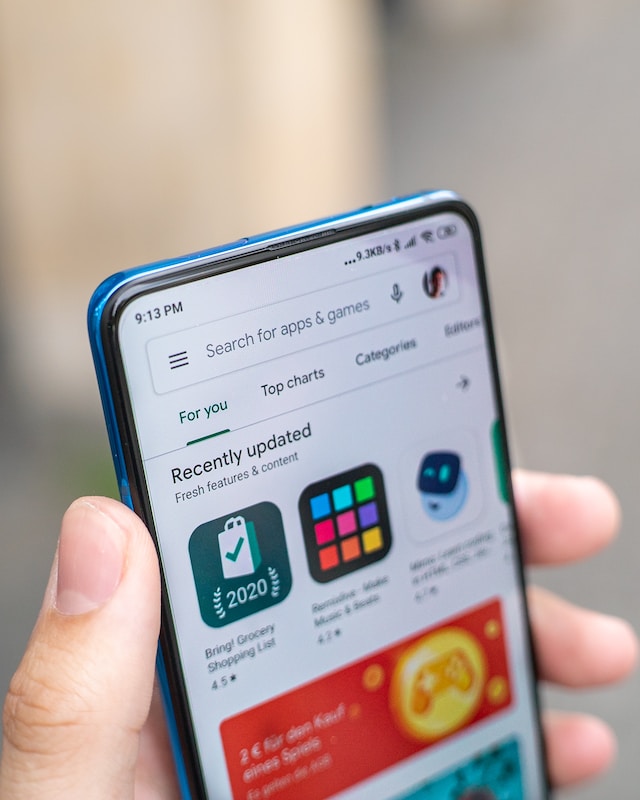
Google Play now has more than 3 million apps available, making it the biggest app store in terms of volume. The app niches vary between categories such as entertainment, gaming, social networking, literature, music, health & fitness, location-based apps and navigation, among many more.
Despite its popularity, Google Play Store comes across apps that violate copyright and security concerns. The giant player has taken steps to protect the rights of its stakeholders and strives every day to do so.
Apple App Store
The biggest tech giant, Apple, launched its Apple App Store in 2008. With the rising number of app users, it was becoming a challenge to manage potential iOS users. Hence, Apple designed an app marketplace for its own ecosystem.
There are nearly 2 million iOS apps available on Apple’s App Store. It is easier to find and download iOS apps for users. Apple takes a 30% commission on app revenue, and the fee is reduced to 15% after the first subscription year.
App Store Review Guidelines pertaining to content, privacy, security, and other topics must be accepted by developers. Prior to publication, Apple strictly reviews apps.
Amazon Appstore
Amazon made a debut in mobile app stores in 2011 and named it as Amazon Appstore. It provided an alternative app store for Android devices, but with the integration with Amazon devices and platform.
The Amazon Appstore offers more than 400,000 games and applications. Though it’s not as huge as Google Play, there are still plenty of possibilities. According to a report, It is estimated that over 30 billion apps have been downloaded via Amazon’s app store in the year 2023.
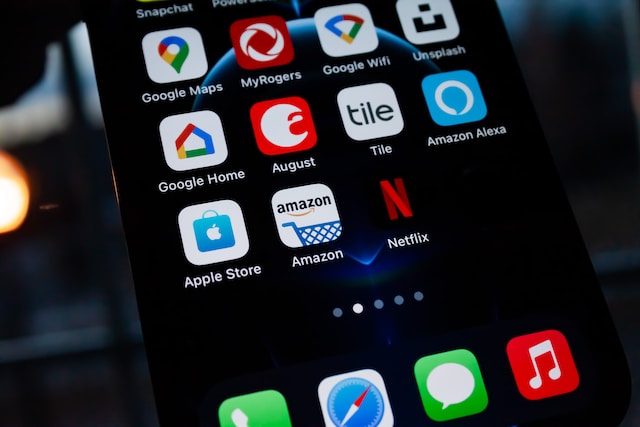
Amazon takes a 30% share in the app revenue, which is quite fair. Your app publishing may take one week and the app must comply with Amazon policies.
Windows Store
The Windows App Store was first launched in 2012, alongside Windows 8. It was intended to serve Microsoft Windows users to search and download Windows apps.
Microsoft continued to evolve its app store with the release of new Windows 12 versions and updated new features and modern UI designs.
There are more than 300,000 apps available for download via the Windows Store. Although this figure is not commendable, as there are millions of apps on iOS and other Android mobile app stores. This was a major reason for many users who did not get attracted to the Windows Store.
But in recent years, Microsoft has made significant investments to entice developers to develop more Windows apps. Some of the famous apps include Zoom, Spotify, Adobe Photoshop, and are now available to download.
Samsung Galaxy App Store
After Apple and Android, Samsung comes as the next leader in the global smartphone market. Keeping it in consideration, Samsung Galaxy launched a dedicated mobile app store for Samsung Galaxy devices.
There are over 50,000 mobile applications available for Samsung Galaxy users. According to a report of 2022, the Galaxy Store users downloaded over 66 billion apps. The store brings in more than $8.5 billion a year.

Samsung has a huge number of its smartphone users. For developers, Samsung Galaxy offers access to the large user base with sophisticated Samsung’s security review and approval processes. Similar to the standard revenue cut, the Samsung store charges 30% revenue from the app sales.
All things considered, the Samsung Galaxy Store offers an ideal route of publishing apps for Samsung devices. It is a crucial app store for the Android ecosystem, competing with Google Play, and exclusive to Samsung devices.
Huawei’s App Gallery
Huawei was dedicatedly looking to build its own app store for quite some time and succeeded in 2011. It made its debut in China in the same year. Then in 2018, it went global to reach the maximum number of audience. AppGallery offers around 580,000 apps as of 2022. Huawei has been expanding its catalog quickly, although still lagging behind Google Play and the Apple App Store.
Unlike all major stores, Huawei takes a 15% revenue cut on app sales. It offers a free developer’s account and four-layer security system that are some major pros for developers and app users.
BuildStore
With a selection of more than 300 exclusive applications and games unavailable in Apple’s official store, BuildStore has rapidly amassed popularity since its founding in 2013. This site, which has over 15,000 active users every day, is unique in that it offers a painstaking manual testing procedure that guarantees every downloaded component is virus-free. Its noteworthy features include the ability to “Request an App,” round-the-clock customer service, and the fact that jailbroken devices are not necessary.
iOS Heaven
With iOS Heaven, you can download applications straight from your web browser without having to download them from the app store, which is a novel method. For those who like such solutions, its web-based platform and quick loading and downloading rates make it a simple choice.
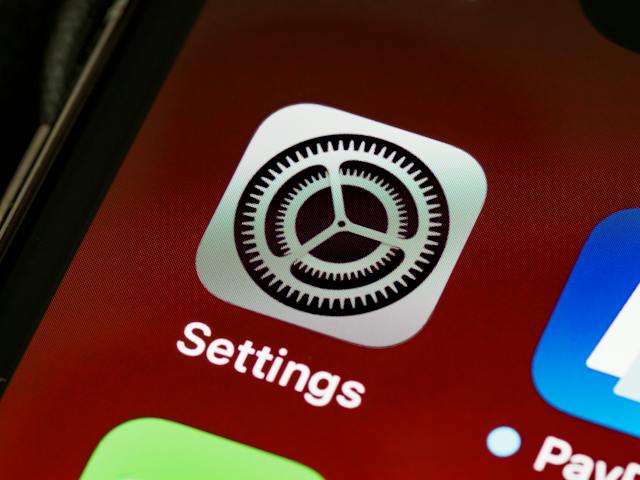
Applyland
For those looking for a third-party app store with more flexibility, Appland is the ideal choice. Appland goes above and above by allowing you to establish and manage your own international app store. It is accessible as both an app and a website. It is a viable alternative to consider due to its ability to generate income and target customers based on their location.
Baidu Mobile Assistant
Baidu Mobile Assistant is a product of a Chinese tech giant “Baidu” and is considered to be the Google of China. It contributes to approximately 15% market share in China. We assume that Baidu offers Google Play alternatives for Chinese mobile users.
Wrapping Up
Building a mobile app is a first step in the mobile app development journey. The next important step is knowing which app stores will serve as perfect platforms for your app niche.
There is no one-perfect name for it. Though, Apple App Store and Google Play Store dominate the app store economy with their extensive user base and accessibility volume. There are some other alternatives too, introducing new app categories and a thriving app store economy.
Some popular app stores mentioned in the above paragraphs will continue to evolve and accommodate high-quality apps. Hence, we’ll see a bright future for the app development economy. Are you ready to welcome a predicted future?



